2016 Christy Awards – Finalists Announced
![ChristyAwardLogo[1]](http://www.speculativefaith.lorehaven.com/wp-content/uploads/2014/04/ChristyAwardLogo1-300x300.jpg) At the end of this month, the Christy Awards, longest running awards for excellence in Christian fiction, will be announced from a group of finalists in nine categories. Recently the award committee announced the finalists. Five speculative novels have been recognized—three in the Visionary category, and two in the Young Adult bracket.
At the end of this month, the Christy Awards, longest running awards for excellence in Christian fiction, will be announced from a group of finalists in nine categories. Recently the award committee announced the finalists. Five speculative novels have been recognized—three in the Visionary category, and two in the Young Adult bracket.
Here are those books, ones you may want to add to your “To Be Read” pile.”
Visionary
- The Five Times I Met Myself by James Rubart (published by Thomas Nelson)
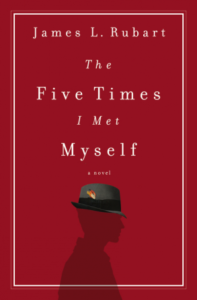
What if you met your twenty-three-year-old self in a dream? What would you say?
Brock Matthewsâ once promising life is unraveling. His coffee company. His marriage.
So when he discovers his vivid dreams—where he encounters his younger self—might let him change his past mistakes, he jumps at the chance. The results are astonishing, but also disturbing.
Because getting what Brock wants most in the world will force him to give up the one thing he doesnât know how to let go . . . and his greatest fear is that itâs already too late.
- A Time To Speak by Nadine Brandis (published by Enclave Publishing) Book Two in the “Out of Time” series.
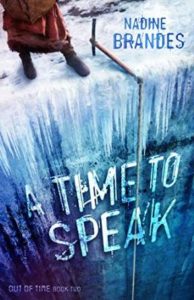
What happens when you live longer than you wanted to?
Parvin Blackwater wanted to die, but now she’s being called to be a leader. The only problem is, no one wants to follow.
The Council uses Jude’s Clock-matching invention to force “new-and-improved” Clocks on the public. Those who can’t afford one are packed into boxcars like cattle and used for the Council’s purposes.
Parvin and Hawke find themselves on a cargo ship of Radicals headed out to sea. What will the Council do to them? And why are people suddenly dying before their Clocks have zeroed-out?
- Waking Beauty by Sarah E. Morin (published by Enclave Publishing)
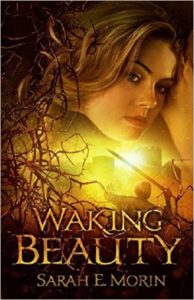 What if the Sleeping Beauty Refused to Wake Up?
What if the Sleeping Beauty Refused to Wake Up?
The rescue wasnât going at all how he planned. Prince Arpien intends to gain a throne and the sleeping beautyâs heart with a single kiss that wakes her from the evil fairyâs curse. But kissing the princess is only the beginning of a series of unforeseen obstacles: man-eating bugs, deadly spindles, talking lapdogs, and fiery pickles. The sleeping beauty is the biggest complication of all.
Princess Brierly is beautiful and Fairy-Gifted, but also…daft. After one hundred years of sleep imprisonment, Brierly refuses to believe this rescue is anything more than a tantalizing but doomed dream.
Arpien is drawn to the vibrancy be-neath Brierlyâs indifferent exterior. Can they reclaim her kingdom? Do they dare trust in the Prince of the old tales to help them battle the evil fairy who cursed Brierly? What is the price of waking beauty?
Young Adult
- The Choosing (A Seer Novel, Book 1) by Rachelle Dekker (published by Tyndale House Publishing)
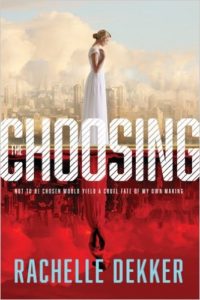
Like all citizens since the Ruining, Carrington Hale knows the importance of this day. But she never expected the moment sheâd spent a lifetime preparing forâher Choosing ceremonyâto end in disaster. Ripped from her family, sheâll spend her days serving as a Lint, the lowest level of society. She knows itâs her duty to follow the true way of the Authority.
But as Carrington begins this nightmare, rumors of rebellion rattle her beliefs. Though the whispers contradict everything sheâs been told, they resonate deep within.
Then Carrington is offered an unprecedented chance at the life sheâs always dreamed of, yet she canât shake the feeling that it may be an illusion. With a killer targeting Lints and corruption threatening the highest levels of the Authority, Carrington must uncover the truth before it destroys her.
- Rebel (No Ordinary Fairy Tale, Book 2) by R. J. Anderson (published by Enclave Publishing)
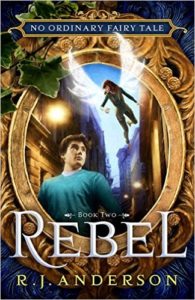
The last time Timothy broke a rule, he got suspended.
But when he defies the faery empress, it might well get him killed.
Timothy Sinclair doesnât believe in faeries—after all the hardships heâs suffered since his missionary parents sent him away to boarding school, heâs not even sure he still believes in God. But when a tiny winged girl named Linden bursts into his life and begs him to help save her people, the skeptical Timothy finds himself drawn into a struggle against a potent evil that threatens humans and faeries alike.
With a deadly pair of hunters on their trail, Timothy and Linden flee across country, drawn by the legend of a white stone that could be the faeriesâ salvation. But the dangers that await them test their courage and resolve to the limit, threatening to tear their unlikely partnership apart. And when it comes down to one last desperate battle, they and all the people they love will be doomed unless Linden and Timothy can find the faith to overcome . . .
– – – – –
One final note about all these Christy finalists: I’m not surprised that two of the three young adult novels fall into the speculative category. I’m pleased, definitely, but not surprised. Speculative fiction is all around in our culture as TV programs, movies, games, and books. Why shouldn’t Christian novels reflect this same interest?
Speculative novels continue to grow in number, and it’s exciting to see them recognized in such a prestigious award as the Christys.

































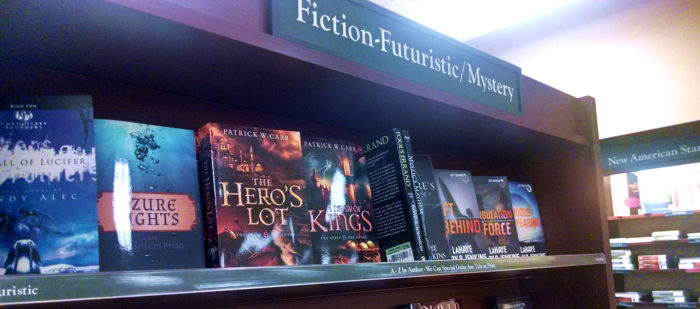

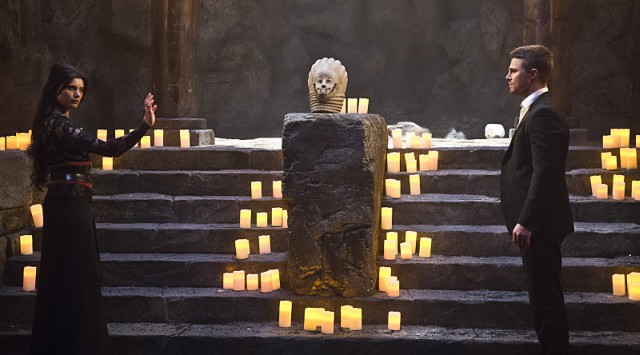
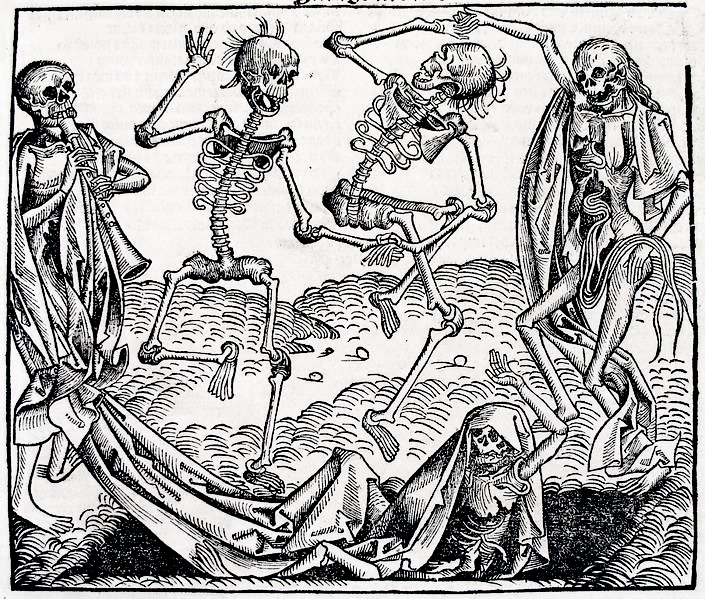
 I’ve had plague on the brain lately. The primary reason is my upcoming historical fiction epic that takes place in medieval Germany during the Black Death (shameless self-promotion: Nikolai the Penitent releases in July and I am super stoked. I don’t believe there has ever been a Christian fiction book this brutal and grim). Anyway, I immersed myself in the plague-ridden world of the Middle Ages while I was writing the story and it was almost too much for me to handle (and coming from me, that’s saying a lot). The apocalyptic horror that the Black Death unleashed upon the world is incomprehensible in our super-sanitized modern times, even though our entertainment is rife with zombies and bioterrorism and innocuous viruses that end up wiping out most of the population.
I’ve had plague on the brain lately. The primary reason is my upcoming historical fiction epic that takes place in medieval Germany during the Black Death (shameless self-promotion: Nikolai the Penitent releases in July and I am super stoked. I don’t believe there has ever been a Christian fiction book this brutal and grim). Anyway, I immersed myself in the plague-ridden world of the Middle Ages while I was writing the story and it was almost too much for me to handle (and coming from me, that’s saying a lot). The apocalyptic horror that the Black Death unleashed upon the world is incomprehensible in our super-sanitized modern times, even though our entertainment is rife with zombies and bioterrorism and innocuous viruses that end up wiping out most of the population.

 Besides digging into an ongoing debate for which there seems no resolution, the post got me thinking. We have Christian readers and Christian writers, the majority of which are found in the glowing lands of sunshine, bonnets, romance, and âfeel-goodâ stories.
Besides digging into an ongoing debate for which there seems no resolution, the post got me thinking. We have Christian readers and Christian writers, the majority of which are found in the glowing lands of sunshine, bonnets, romance, and âfeel-goodâ stories. If Christian readers continue to snub spec-fic, authors will turn elsewhere to find a readership. Itâs not impossible for a Christian to do well in the ABA. In fact, in some cases itâs probably easier. Fantasy and science fiction, while still an undersized slice of the ABA pie, have an avidâand much largerâfollowing in the general market.
If Christian readers continue to snub spec-fic, authors will turn elsewhere to find a readership. Itâs not impossible for a Christian to do well in the ABA. In fact, in some cases itâs probably easier. Fantasy and science fiction, while still an undersized slice of the ABA pie, have an avidâand much largerâfollowing in the general market.
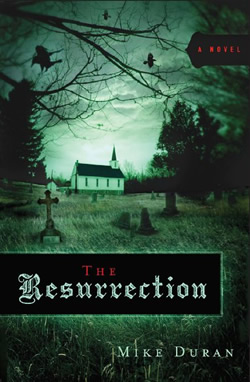 Mike is a hybrid author, having published his first two novels with a traditional Christian publisher (Resurrection and The Telling, Strang), and his last two books as an independent (The Ghost Box and Christian Horror), with another (Saint Death) soon to be released. He also published a digital novella, Winterland, and a collection of short stories entitled Subterranea.
Mike is a hybrid author, having published his first two novels with a traditional Christian publisher (Resurrection and The Telling, Strang), and his last two books as an independent (The Ghost Box and Christian Horror), with another (Saint Death) soon to be released. He also published a digital novella, Winterland, and a collection of short stories entitled Subterranea. Mike lives in southern California with his wife, Lisa, who he married in 1980. They have four adult children. Currently he works full time in construction and moonlights as an author.
Mike lives in southern California with his wife, Lisa, who he married in 1980. They have four adult children. Currently he works full time in construction and moonlights as an author.

 K.M. Weiland lives in make-believe worlds, talks to imaginary friends, and survives primarily on chocolate truffles and espresso. She is the IPPY and NIEA Award-winning and internationally published author of the Amazon bestsellers Outlining Your Novel and Structuring Your Novel, as well as the portal fantasy Dreamlander, the historical/dieselpunk adventure Storming, the medieval epic Behold the Dawn, and the western A Man Called Outlaw. When she’s not making things up, she’s busy mentoring other authors on her award-winning blog,
K.M. Weiland lives in make-believe worlds, talks to imaginary friends, and survives primarily on chocolate truffles and espresso. She is the IPPY and NIEA Award-winning and internationally published author of the Amazon bestsellers Outlining Your Novel and Structuring Your Novel, as well as the portal fantasy Dreamlander, the historical/dieselpunk adventure Storming, the medieval epic Behold the Dawn, and the western A Man Called Outlaw. When she’s not making things up, she’s busy mentoring other authors on her award-winning blog, 




 Some time ago, before julie Gwinn became an agent, I had contact with her in my role as the organizer of the Christian Science Fiction and Fantasy Blog Tour. At the time she was working for a publisher in a marketing capacity and was the person I contacted to set up tours. Since then, she’s moved to the agency side of the publishing business. In 2014 she became an agent at
Some time ago, before julie Gwinn became an agent, I had contact with her in my role as the organizer of the Christian Science Fiction and Fantasy Blog Tour. At the time she was working for a publisher in a marketing capacity and was the person I contacted to set up tours. Since then, she’s moved to the agency side of the publishing business. In 2014 she became an agent at  At present Julie is open to submissions. She “accepts queries in the following genres: Women’s Fiction, Romance (contemporary, historical, suspense, inspy. Amish) Spec Fiction and Fantasy, Mysteries and Suspense, Inspirational Fiction and Nonfiction, Historical Fiction, YA.” (from the
At present Julie is open to submissions. She “accepts queries in the following genres: Women’s Fiction, Romance (contemporary, historical, suspense, inspy. Amish) Spec Fiction and Fantasy, Mysteries and Suspense, Inspirational Fiction and Nonfiction, Historical Fiction, YA.” (from the 
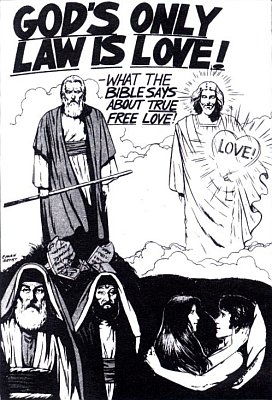
 But Christians who assume non-Christians easily get biblical concepts of grace, love, and mercy are just as insular.
But Christians who assume non-Christians easily get biblical concepts of grace, love, and mercy are just as insular.


